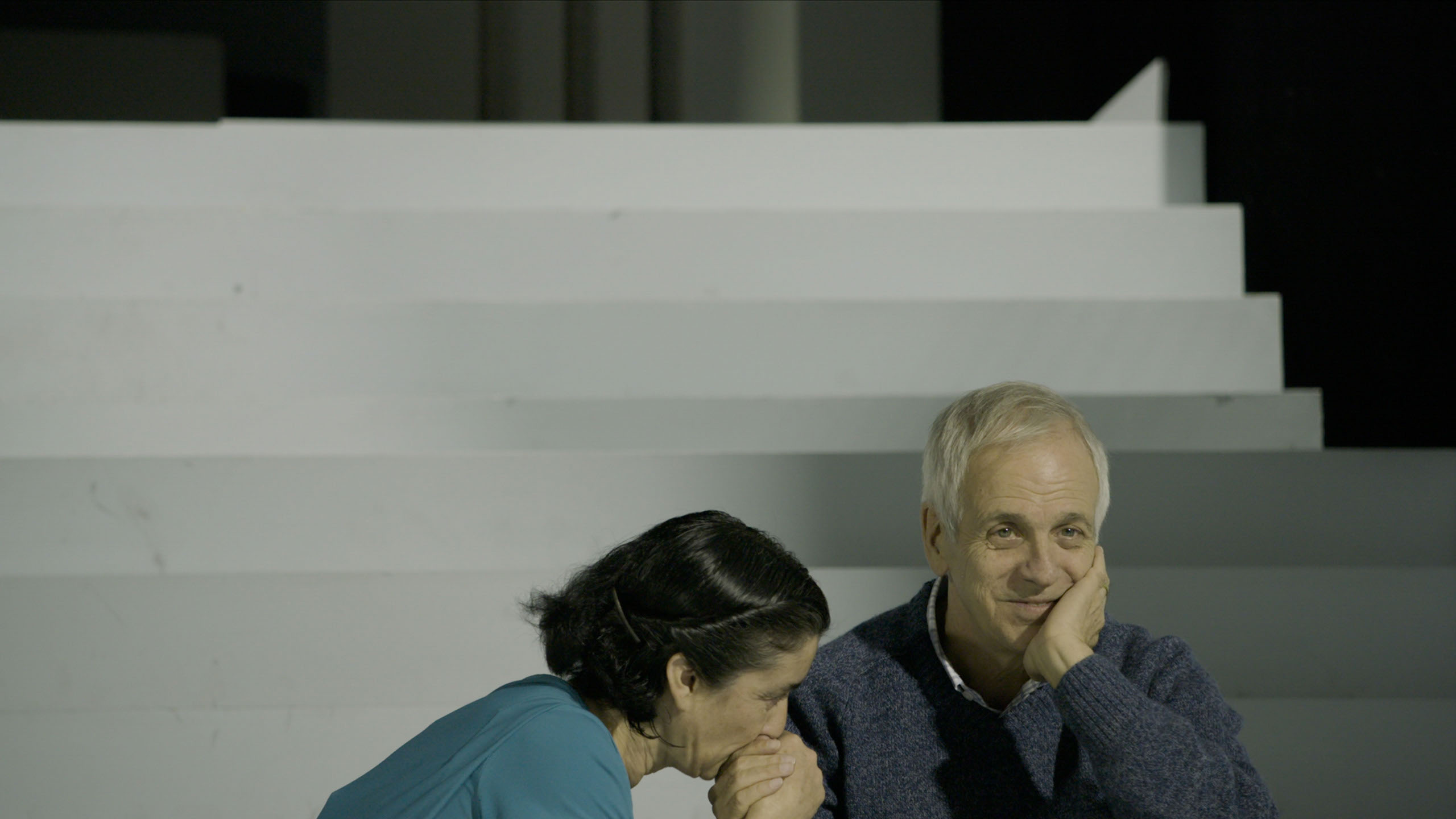Filmmaker Maite Alberdi seems keen to remind us non-fiction cinema can belong to different genres rather than reinforce some notion that they are a genre unto themselves. In the delightful The Mole Agent she delivered a thriller of the absurd; a bittersweet detective movie in which an elderly man infiltrates a nursing home where there are suspicions of elderly abuse. With The Eternal Memory, she tackles romance and tells one of the most moving love stories in ages.
Augusto Góngora and Paulina Urrutia have been together for a quarter-century. They met and became inseparable, eventually marrying and building a home, literally and metaphorically. They were both prominent professionals in their field; Góngora as a journalist who came of age while covering the last days of Pinochet’s dictatorship and Urrutia as a stage actor who went on to become Minister of Culture during Michelle Bachelet’s first government.
When we meet them, Góngora has been living with Alzheimer’s for almost a decade, his memory more frail every day. The film opens in their living room, where Urrutia is asking her husband questions he should know the answers to. He slyly changes the topic when his memory fails him. He doesn’t know how to respond to mundane inquiries, often smiling while he accuses his wife of trying to set him up.
We understand this has become a habitual practice for them, as Urrutia tries to keep him grounded and safe, even during nights where he yells out the window asking to be rescued. “You’re home,” she says, filled with sadness and sympathy, but he demands to see his children, unaware that they have become adults who left the nest years ago.
Using home videos that date back to the time they met, Alberdi crafts a transcendent timeline of their life together, expressions that will remain long after they’re gone. We see archival footage of a dazzling Góngora talking to Javier Bardem and the late Gustavo Cerati, as well as interviewing young children about the future of Chile. As a journalist, Góngora helped the country’s transition from dictatorship into democracy by co-writing a book titled Chile: The Forbidden Memory, where he and other authors chronicled the losses their nation had undergone. A country that doesn’t remember is set to repeat its mistakes, and “a country without memory has no identity,” he says during a press conference from the time the book was published.
Seeing Góngora decades later makes for an utterly heartbreaking contrast. But Alberdi is too bright and generous a filmmaker to rely merely on juxtaposition as means of eliciting an emotional response. She constantly reminds us that, despite Góngora’s illness, her film is about celebrating life through the lives of her subjects.
There are moments of pure wonder where Góngora sits in a theater watching his wife perform onstage. We almost see him falling in love with her all over again, smiling the same wide smile from older videos that captured the promise he saw in his country’s future. If theater shows us the present, then film, Alberdi posits, captures joys of the past so we can carry them, keeping us warm in the future.
The Eternal Memory premiered at Sundance 2023 and will be released by MTV Documentary Films.

